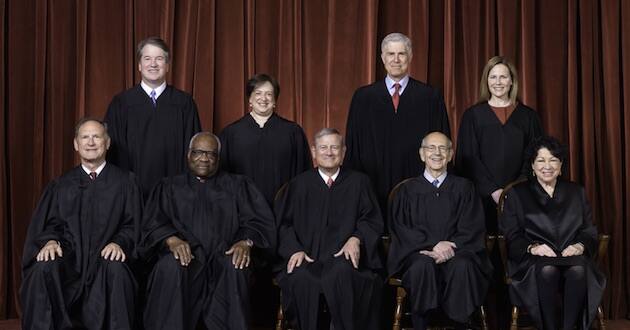U.S. Supreme Court will consider pro-life and other key issues as new term begins

The U.S. Supreme Court will open its new term on Monday with several cases of importance to Christians on the docket.
Among the 34 it so far has agreed to hear are ones regarding abortion, and religious schools excluded from a state school choice program. Perhaps the most anticipated case of the term is Dobbs v. Jackson Women’s Health Organization, the abortion case that will be argued on December 1 and has been described as potentially taking down Roe v. Wade, the court’s 1973 decision legalizing abortion. Here, the justices will consider the constitutionality of a Mississippi state law prohibiting abortions after the 15th week of pregnancy. The state ban was struck down by a federal District Court in Mississippi in 2018 and upheld a year later by the New Orleans-based U.S. Court of Appeals for the 5th Circuit.
The nation’s high court already stepped into the abortion debate in early September when it declined to block a Texas law banning abortions after six weeks of pregnancy. About three weeks later, Texas abortion providers urged the high court to again review their challenge to the state law before a federal court’s anticipated ruling on it in December.
In previous abortion rulings, the Supreme Court consistently has said states cannot restrict abortion before 24 weeks of pregnancy, focusing on viability, or when a fetus is said to be able to survive on its own. If the court sides with Mississippi in this term’s case, it would be the first time it would allow an abortion ban before the point of viability and could lay the groundwork for other abortion restrictions.
READ: How the Texas law took a page from the left to beat them at their own game
The court will also hear cases dealing with important Second Amendment and warrantless searches (which it will hear on Monday).
The nine justices are jumping into the fray at a time when media attacks on the court are becoming even more frequent. But the court’s decision have angered those on the left and right. A Gallup poll released two weeks before the court’s new session said only 40 percent of Americans approve of the job the court is doing, compared with 49 percent two months ago and 58 percent a year ago.
The court lost support on the right after if failed to even consider important state cases relating to the 2020 election angering many conservative voters. On the left, the court has ruled against the Biden administration as Justices upheld Trump administration policies such as the Remain in Mexico policy.
Since the election, Democrats have sown doubt about the court’s effectiveness in an effort to win support for packing the court with additional justices who would be appointed by the Biden administration. The new court term will be seen as a test for many Democrat and Republican-led policies across the country.
“Not since Bush v. Gore has the public perception of the court’s legitimacy seemed so seriously threatened,” said Irv Gornstein, executive director of the Supreme Court Institute at Georgetown University Law School, referring to the Supreme Court’s decision settling the 2000 presidential election.
–Alan Goforth | Metro Voice








